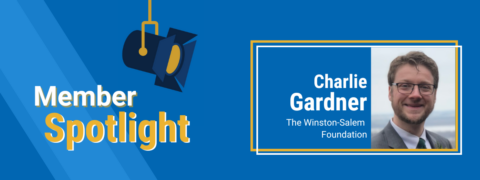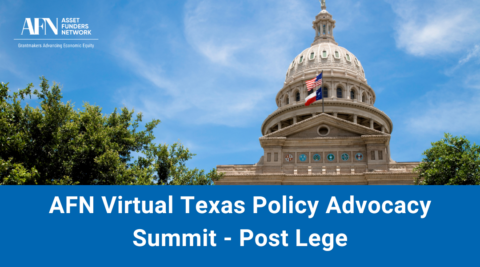Meet our members! AFN’s greatest asset is our members—a diverse network of national, regional, and community-based foundations, financial institutions, and grantmakers—investing in advancing equitable wealth building and economic mobility. Check back each month and meet your peers!
1: What is the mission of your organization and how is advancing equitable wealth building and economic mobility incorporated into the work?
The Winston-Salem Foundation’s grantmaking focus area of “Building an Inclusive Economy” is designed to address the interconnected issues that negatively impact the economic mobility of BIPOC community members. Within this focus area, we prioritize making grants aligned with the three “W” s: Wealth, Wages, and Wheels. That is to say, we proactively engage community partners and support programs that promote Asset Building, Pathways to Family Sustaining Careers, and Equitable Access to Transportation.
2: How does your organization currently or plan to explicitly and intentionally include and empower people of color in the design of your policies and strategies to close the racial wealth gap?
Since 2018, the Foundation has been on a journey to deepen its understanding of and commitment to racial equity as both a priority in our work in the community and as a hallmark of our organizational culture. We created an internal Equity Leadership Team to review our policies and norms, worked with a DEI consultant to update our strategic plan and have monthly racial equity meetings for staff to build a more inclusive workplace. For our work in the community, we have embedded a racial equity framework in our grantmaking and impact investing programs.
s
3: Where are we lacking investments as a sector that will result in greater economic equity, and how can we address the gap?
A couple of years ago, the Foundation hosted the Undesign the Redline Exhibit in our community. This exhibit did an excellent job of illuminating how the historic redlining policies were intentionally created to shape our cities and advantage White and disadvantage BlPOC residents. This racial and economic disparity was highlighted during the COVID-19 pandemic. More work in our sector must be intentionally aimed at undoing the harms of redlining in our cities through catalyzing more significant investments in historically under-resourced and disinvested neighborhoods. Just as the discriminatory policies were wide-ranging, our response must be multifaceted in education, health, wealth building, community development, and public goods.
4: Share a question you would like to raise to your AFN community.
What are the metrics that you care about to help ensure that we are making an impact?
5: What have been some of the biggest benefits of being part of the Asset Funders Network?
I greatly appreciate being part of a peer community who also care about these issues and whose work can inspire my own. I also greatly value all the research papers that AFN has developed: they been extremely helpful in helping to shape my strategies to address asset poverty and lack of economic mobility in my community.
6: What is the last book you read?
Fiction: Tomorrow, and Tomorrow, and Tomorrow by Gabrielle Zevin.
Nonfiction: Money Ball by Michael Lewis.
About Charlie Gardner, The Winston-Salem Foundation
Charlie Gardner is a program officer for The Winston-Salem Foundation, within the focus area of Building an Inclusive Economy. He manages the foundation’s grant-making in two primary areas: promoting equitable transportation initiatives and addressing the racial wealth gap in Forsyth County through asset building and debt reduction. Since 2020, he has led the Foundation’s work to utilize both grants and mission-aligned investments to support BIPOC business ownership by improving access to capital and technical assistance. Gardner currently serves on the board of the Asset Building Coalition of Forsyth County and is the chair of the coalition’s advocacy committee. He also serves on the loan committee for the CARes Project, which is a local CDFI that makes affordable car loans to people with poor credit history. Prior to coming the foundation, he served as a grants manager at an NGO that worked in international development, healthcare, civil rights, and conflict resolution. And at a national faith organization, he served as a program manager that developed resources and trainings for regional grantmakers that funded anti-poverty initiatives.
Gardner has a Master of Science in Data Science from Regis University. He is a graduate from the University of Notre Dame, where he received both a M.A. in Theology and a B.A. in the Program of Liberal Studies.



